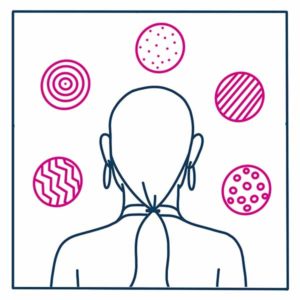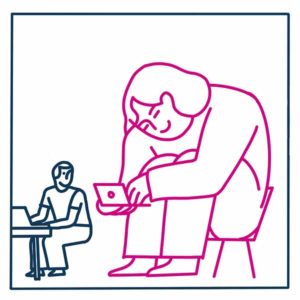At the time of writing its October 2020 ‘the coronavirus year’…..and we’re all feeling it.
SAD is a type of depression linked to the changing of the seasons – in fact 10-30% of those with depression will also experience SAD. The exact causes are still subject to research, but it’s likely that shorter days contribute to a drop in serotonin and melatonin and disrupt our body clocks, and it’s this that leads to feelings of depression, over-sleeping and low energy levels.
So what can organisations do to get the best from these particularly challenging winter months?
We’ve asked our community, and many of the strategies and tactics that can make a difference aren’t new – we’ve either been using them for some time, or rapidly developed them when Covid-19 first emerged.
The steep learning curve we went through earlier in the year will pay dividends now, true to the pattern that discomfort often kindles growth and learning.
Here’s what our community are taking forward as the key lessons for these winter months…
1. Make your own sunshine
As individuals, we can combat SAD by employing a few practical steps. If you have the option, break up your day for longer at lunchtime and make the most of the light levels by getting outside for a walk or pottering in the garden. It can also help to invest time on days where you have higher energy levels on prepping for days when you might feel lower, by making and freezing food, or getting through chores.
Last but not least, sharing how you feel with someone experiencing the same can help you feel less alone and may also be a way to share tips and advice. And remember: every day that passes brings Spring that little bit closer.
2. Keep Experimenting
Organisations have been more adventurous out of necessity this year, and as we go into the winter this is the perfect time to continue trying out new approaches and pilot them within your organisation, whether it’s around the wellbeing of your team or a new business idea. If they show results, roll out more widely – if it doesn’t make an impact, learn from this and move on. For example, try out different Slack apps to boost engagement and morale, or even run competitions for the amount of steps walked each day between different teams.
Look out for the wins that emerged in the last six months and replicate their winning ingredients.
3. Refresh your vision and values
With so much change having occurred this year, now’s the time to revisit organisational vision and values to make sure they are still relevant and fit with your new ways of working. It can also be helpful to run focus groups with the team to see if you’re inadvertently encouraging unhealthy behaviour – for example, a value of ‘Above and Beyond’ could lead some to overwork, increasing the risk of burnout. Running some activities clarifying behaviours and expectation can help with this.
It also never hurts to keep conversations about your vision and purpose fresh, and create opportunities for people to see directly how their work contributes to this.
4. Don’t neglect your People essentials
Putting priorities like performance conversations on pause is a false economy. If you only focus on ‘just doing the job’, people can end up feeling isolated and without direction or purpose, exacerbating existing or developing mental health challenges. There are more demands than ever on our attention, but the core principles of taking care of your team (leading with purpose, supporting and empowering people to do their best work) never goes out of style.
We invest in people was designed with the unique ambitions of each organisation at its heart, so if you’d like some support with aligning your people strategy to meet the business priorities, reach out to see how we can help.
5. Make time for fun and chit chat
We’ve heard from people in non-accredited organisations that they can go days without anyone asking them how they are, or discussing non-work topics – increasing their feelings of loneliness and isolation.
So it’s key to consider how to drive up levels of community and team spirit and to make work fun. A quick call costs little and can transform someone’s day. If you have a core of people that others rally around for this activity, give them permission and a budget (if possible) to help them keep momentum into these winter months. Maybe they could even organise your Christmas party alternative!
6. Keep the spotlight on wellbeing
The pandemic has accelerated the focus on wellbeing at work and we now need to use this momentum to make sure that wellbeing stays centre stage. If you haven’t already, a good place to start is to review your policies and practices with a wellbeing lens and to make sure they support how you’re working now. Consider whether your culture supports and empowers individuals in the organisation to take care of their mental health.
For further tips and advice on where to get started, consider joining our new health and wellbeing programme or read more here.
7. Flexible is the new 9 to 5
It’s been a positive surprise for most how well (and quickly) we adapted to using more technology to work with each other, and working from home has boosted flexibility in some cases. However, it’s possible that your people may be feeling pressure to be ‘always on’ and responsive, which could stop them from taking the time they need to have breaks and stay well this Winter. Leaders can help with this by taking ‘time out’ themselves and thereby giving permission to their teams to do so too. Actions which demonstrate trust in people, supporting them in working how and when works for them, will fuel productivity and wellbeing.
One lesson we’ve seen in different organisations is the importance of checking in with teams to see how the experience of working in new ways is changing over time, and to respond to any feedback from this.
8. Be human and honest
Leaders are people too and so are therefore just as likely to experience SAD. There is still stigma around expressing challenges with mental health at a senior level, but this year we’ve seen this being challenged as health has become everyone’s number one concern. Just like every other person in a business, if you’re a leader experiencing SAD, it’s important to get the support you need and to talk to someone you trust about how you’re feeling.
Showing vulnerability has become an important capability for everyone, but particularly ‘at the top’. Over the last six months, people have told our Practitioners that where their leaders have been able to connect at a personal and individual level, it’s resulted in much higher levels of trust and transparency.
Leaders asking for help and support creates the safety for others to discuss when they’re struggling, which in turn leads to positive outcomes both for individuals and the business.
9. Embrace realistic optimism
If you had to place your organisational outlook on a spectrum between optimistic and pessimistic, where would you sit? We all have our individual place on this spectrum too. The key is to find a balance between the two outlooks, where you are able to objectively assess the ‘world’ in which you are taking decisions, protect against the worst case happening but still aspire to the best.
To facilitate this in teams, it can be helpful to use strategy tools like PESTLE analysis or SWOT… even the less attractively named ‘Stinky Fish’ activity, which brings the unspoken fears of a team out into the open.







